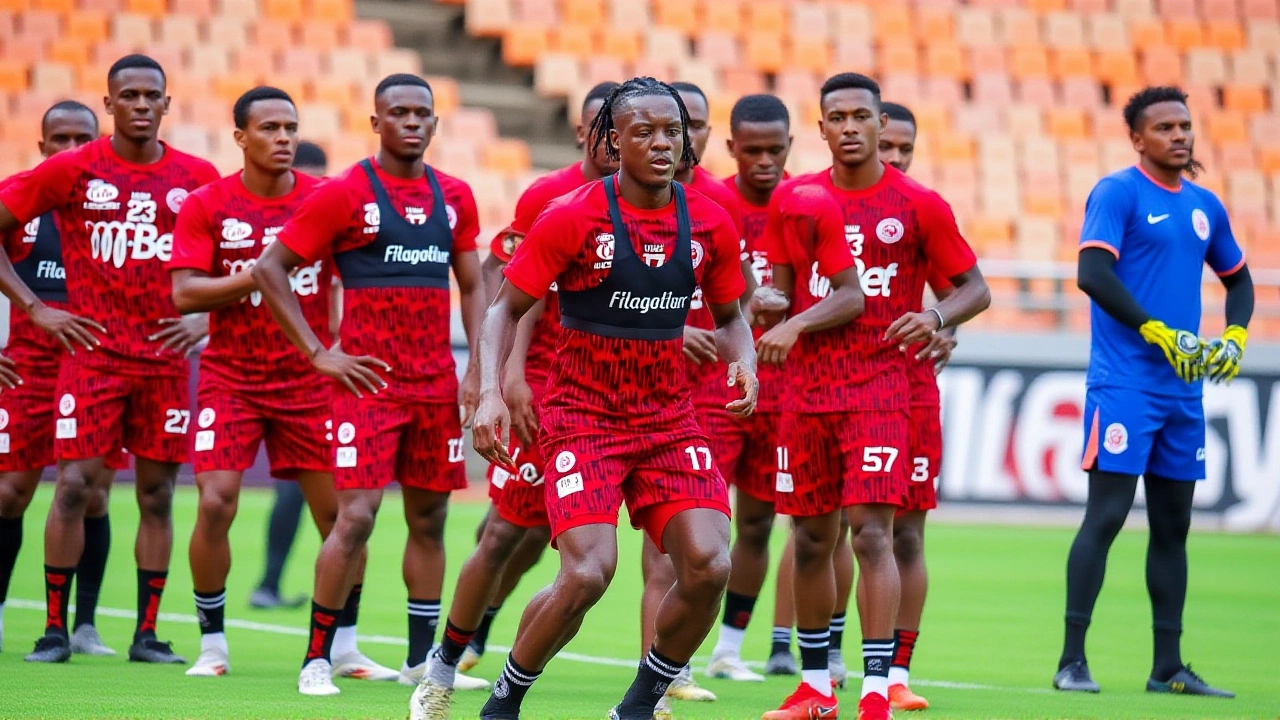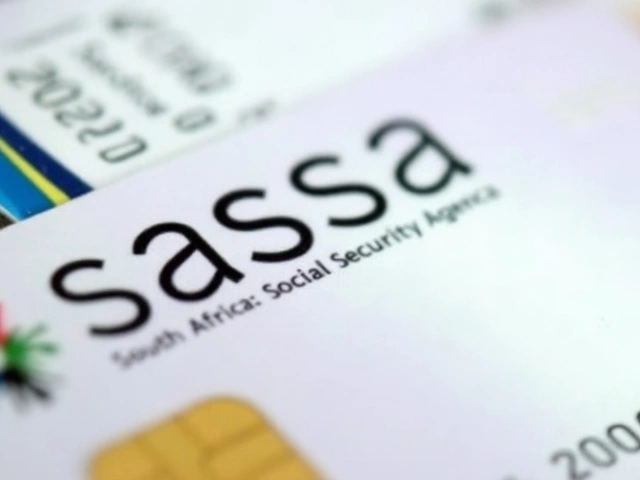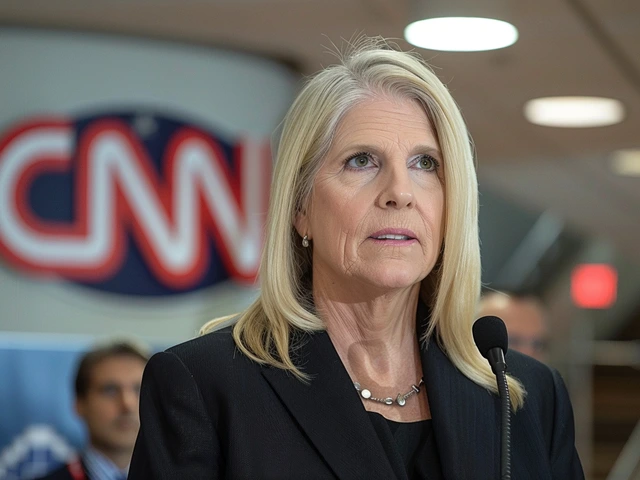Two of Egypt’s most persistent football rivals, Haras El Hodoud and Al Masry, are set to lock horns twice in 2025 — once in the Egyptian Premier League and again in the Egyptian League Cup. The first meeting, on May 28, 2025 at 13:00 local time, will take place at Al Masry Stadium in Port Said. The second, on December 25, 2025 at 15:00 UTC, will be held at Harras El-Hedoud Stadium in Alexandria. This isn’t just another double-header. It’s a revival of one of Egyptian football’s most stubborn, low-scoring, emotionally charged rivalries — one that’s been simmering since 2006.
The Rivalry That Won’t Fade
Since their first recorded meeting in 2006, these two clubs have played 27 official matches. The numbers tell a surprising story: Haras El Hodoud has won 8 times, scoring 28 goals (1.0 points per game), while Al Masry has claimed 7 victories with 23 goals (0.9 points per game). Twelve matches ended in draws. That’s not dominance. That’s deadlock. And it’s the draws — the 1-0s, the 0-0s, the tense, cagey stalemates — that define this fixture. In fact, when Al Masry hosts at home, the most common result? 1-0. It’s happened four times. No fireworks. Just grit.
Here’s the twist: Haras El Hodoud hasn’t won away at Al Masry since 2019. That’s six years of frustration on the road. Meanwhile, Al Masry hasn’t won any of their last four games — a rare slump for a club that usually thrives on home soil. But form doesn’t always matter here. This is about pride. About the Suez Canal versus the Mediterranean. About Port Said’s industrial pulse versus Alexandria’s coastal swagger.
Who’s Playing? The Teams in Focus
Haras El Hodoud, founded in 1949, fields a squad of 37 players with an average age of 26.9. Six are foreigners — a modest but strategic infusion of international talent under head coach Ahmed Zahran. Their home ground, Harras El-Hedoud Stadium, holds 22,500 fans — a cauldron of noise when the team’s on a roll. They’ve won the Egypt Cup twice and the Supercup once. They’re not giants, but they’re respected.
Al Masry, based in Port Said, carries more history — and more pressure. The club has been a fixture in Egypt’s top flight since the 1950s. Their fans are among the most passionate in the country. But recent form has been shaky: in their last five matches, they’ve won just once, drawn two, and lost two. They’re conceding 1.8 goals per game — a worrying trend. Meanwhile, Haras El Hodoud have been more resilient: three wins, two draws, zero losses in their last five. They’re not scoring much — just 0.4 goals per match — but they’re hard to beat.
What’s at Stake?
The May 28 Premier League clash comes at a critical juncture. With relegation battles looming and mid-table teams jostling for continental qualification spots, three points could be the difference between survival and relegation. For Haras El Hodoud, a win in Port Said would be monumental — their first away victory in six years. For Al Masry, a draw might feel like a win. They know how to grind out results at home.
The December 25 League Cup meeting? That’s the wildcard. Christmas Day. A day usually reserved for family, not football. But in Egypt, this fixture transcends tradition. It’s not just about advancing from Group C — it’s about sending a message. Who controls the northern corridor of Egyptian football? Who holds the psychological edge?
What’s Next?
Before the May clash, Haras El Hodoud face Wadi Degla on November 4, 2025 — a chance to rebuild momentum. Al Masry will be watching closely. If they can turn their defensive issues around by mid-year, they’ll enter the May match with confidence. If not? Expect another tense, goal-sparse affair.
The League Cup match on Christmas Day is already being talked about as a potential classic. With no major international tournaments scheduled that day, Egyptian football fans will have nowhere else to turn. Broadcasters are already lining up. Social media is buzzing. And the players? They know what’s on the line.
A Rivalry Rooted in Geography
This isn’t just about tactics or transfers. It’s about identity. Alexandria — Egypt’s ancient port, a city of poets and philosophers. Port Said — the gateway to the Suez Canal, a city forged by labor, trade, and resilience. When these teams meet, it’s not just football. It’s history speaking. It’s regional pride clashing on the pitch.
For decades, these clubs have been mirrors of their cities: Haras El Hodoud as the quiet, disciplined underdog; Al Masry as the proud, sometimes stubborn, traditionalist. Neither has won a league title in years. But neither will ever back down.
Frequently Asked Questions
Why are Haras El Hodoud and Al Masry playing twice in 2025?
They’re competing in two separate tournaments: the Egyptian Premier League and the Egyptian League Cup. The May 28 match is a league fixture, while the December 25 game is part of Group C in the League Cup. Both competitions run concurrently, meaning top-tier clubs often face each other multiple times in a single season.
Who has the historical advantage in head-to-head matches?
Since 2006, Haras El Hodoud has won 8 matches, Al Masry 7, with 12 draws. Haras El Hodoud has scored more total goals (28 vs. 23), and averages slightly higher points per game (1.0 vs. 0.9). But Al Masry dominates at home, winning 5 of the last 8 matches there, often by 1-0.
When was Haras El Hodoud’s last away win against Al Masry?
Haras El Hodoud’s last away victory at Al Masry’s stadium was in 2019. Since then, they’ve played five matches in Port Said — losing three and drawing two. That six-year winless streak adds immense pressure for their 2025 visit, making the May 28 match a potential turning point.
How do recent team forms compare heading into 2025?
In their last five matches, Haras El Hodoud won three, drew two, and lost none — showing strong defensive discipline despite scoring only 0.4 goals per game. Al Masry won one, drew two, lost two, and conceded 1.8 goals per match — a worrying trend. Their defensive frailties could be exploited if Haras El Hodoud’s defense holds firm.
Why is the December 25 League Cup match significant?
Playing on Christmas Day is rare in Egyptian football, making this a standout fixture. With no international matches scheduled, fans will be glued to screens. For both clubs, advancing from Group C could mean a shot at the cup final — and a rare opportunity for silverware. It’s also a chance to reclaim regional pride after a turbulent season.
What’s the atmosphere like when these teams play?
It’s intense. Fans from Alexandria and Port Said travel in large numbers, and the stadiums become battlegrounds of regional identity. The matches are often physical, tightly refereed, and low-scoring. There’s little celebration after goals — just relief. It’s less about spectacle, more about survival. For both sets of supporters, winning this fixture feels like winning the city’s honor.







Mark Burns
December 25th. Christmas Day. Football. In Egypt. I’m not even kidding - this is the kind of thing that makes me believe in destiny. Who else is gonna watch this instead of opening presents? Nobody. And I’m here for it.
Anita Aikhionbare
Al Masry ain’t just a team - they’re Port Said’s heartbeat. Haras El Hodoud can talk all they want about discipline and defense, but when you play at the Canal, you play with fire. That 1-0 win streak at home? That’s not luck. That’s culture. And no foreigner’s gonna change that.
jen barratt
There’s something beautiful about how quiet this rivalry is. No screaming headlines, no viral goals, just 90 minutes of two teams refusing to give an inch. It’s like watching two old friends who haven’t spoken in years - still know every move the other’s gonna make. No need for fireworks when the silence speaks louder.
Beverley Fisher
I don’t even know football but I’m obsessed now. Like… why is everyone so calm after goals? Like it’s just… ‘oh, okay, we’re still alive’? That’s the most emotionally intense thing I’ve ever seen. I need a documentary. Now.
Richard Klock-Begley
Haras El Hodoud hasn’t won away since 2019? That’s not a drought - that’s a curse. They better bring a priest, a psychologist, and a new goalkeeper. Or just give up and go home.
Rick Morrison
Let’s not ignore the stats: 27 games since 2006, 12 draws, 15 wins split 8-7. That’s not a rivalry - that’s a statistical anomaly. These teams are mirror images. Same hunger, same fear, same inability to break the tension. It’s not about skill. It’s about psychology.
Frances Sullivan
Defensive efficiency metrics show Haras El Hodoud’s xGA is 0.38 per match over last 5, Al Masry’s at 1.82 - significant variance. Contextualizing home advantage: Al Masry’s 1-0 home wins correlate with high pressing intensity in first 25 minutes. No overreliance on set pieces. Pure positional discipline.
Clare Apps
alexandria vs port said. it’s not just football. it’s like… the ocean vs the canal. one’s calm, one’s busy. both won’t back down. i get it now.
Nadine Taylor
Y’all are acting like this is the first time teams from different parts of Egypt have clashed. Remember Al Ahly vs Zamalek? This is the same energy - just smaller, quieter, and way more real. These fans don’t need trophies to feel proud. They just need to know their city didn’t lose.
jessica doorley
It is imperative to recognize the strategic significance of this fixture within the broader context of Egyptian football’s competitive ecosystem. The psychological resilience demonstrated by both clubs, particularly under pressure, constitutes a paradigm of sportsmanship and regional identity preservation.
Christa Kleynhans
they play on christmas and nobody cares? in africa we dont celebrate christmas like that. we celebrate with family and food. football is just bonus. but this? this is different. this is war. and i love it
Kevin Marshall
man i just wanna see someone score and then just sit down like ‘yeah that’s it, we’re good’ 😅
Eve Armstrong
There’s a cultural anthropology layer here that’s fascinating - the Suez Canal as a symbol of labor and movement versus Alexandria’s intellectual legacy. This isn’t just football; it’s a living archive of Egyptian urban identity. The 1-0 results? That’s the sound of history holding its breath.
Alex Braha Stoll
so haras el hodoud hasn’t won away since 2019… and al masry hasn’t won in 4? so… they’re both bad at winning? what’s the point?
Evelyn Djuwidja
Of course the Americans think it’s funny that a 1-0 win is a big deal. In Egypt, a goal is a miracle. A clean sheet is a revolution. And you think we’re obsessed with trophies? We’re obsessed with not being erased. These matches are the only time Port Said and Alexandria feel like they matter.